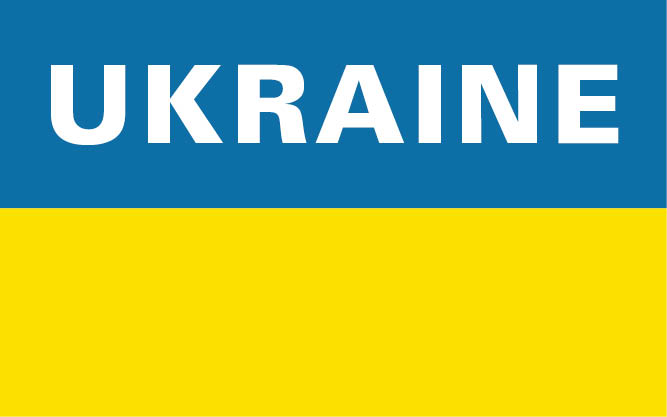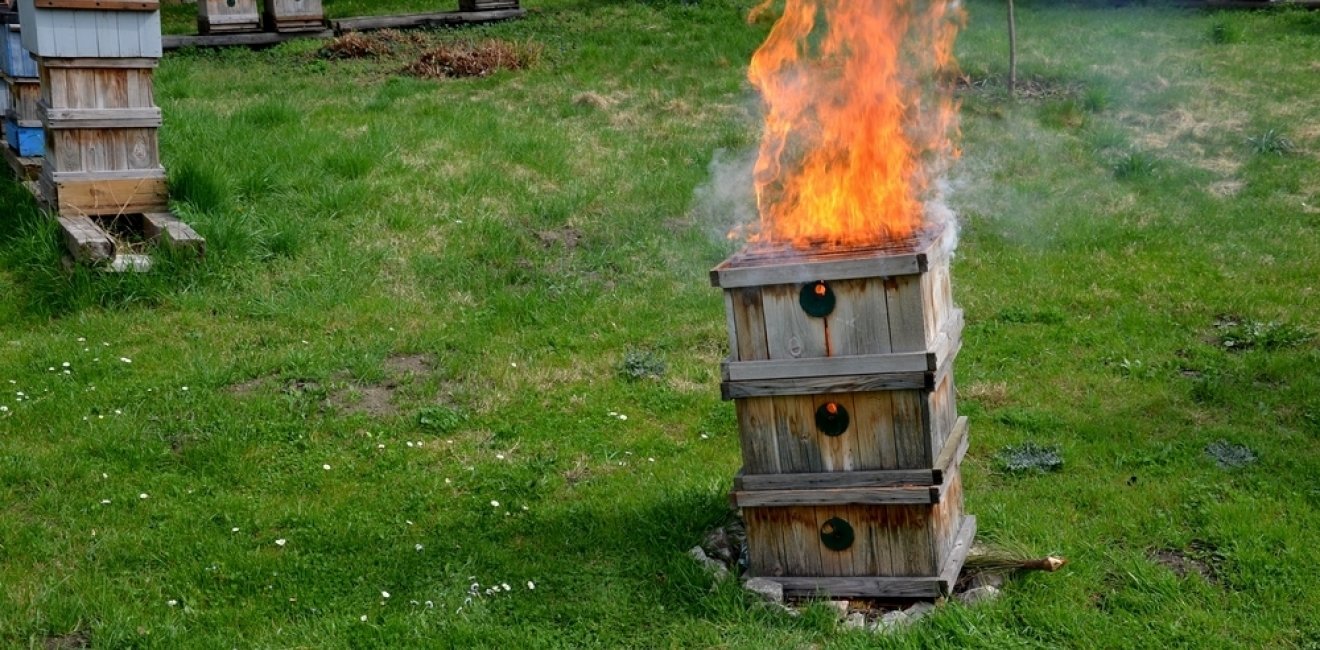
A blog of the Kennan Institute
The story of the making of Dmytro Moiseev’s feature film Grey Bees is worthy of a film in and of itself. Moiseev and his team were in full production in Severodonetsk when Russia launched its full-scale invasion in 2022. That city, located in the Luhansk region, would fall into Russian hands in heavy fighting within months. Somehow, the filmmakers were able to keep going, elsewhere, until they completed the film a year later.
Moiseev based his film on illustrious Ukrainian writer Andrey Kurkov’s tender 2018 novel of the same name about a beekeeper and a neighbour who choose to remain in the grey zone between armies to protect their bees. The book garnered critical acclaim in Ukraine and abroad, with Boris Dralyuk’s translation winning the 2022 American National Book Critics Circle Award for translated fiction.
After gaining critical acclaim abroad, Moiseev’s film won the Golden Duke award for the best new Ukrainian feature film at this year’s Odesa International Film Festival, Ukraine’s largest and most important film fest. Over the course of the past decade and a half, the festival has become known for the most anticipated premiers of Ukrainian films, the debut of young talents, and an opportunity to catch films for the first time. The award statues depict Odesa’s famous statue of city founder Duc de Richelieu.
This year the festival was held in Kyiv due to security considerations. Film actor Daria Tregubova and television personality Vadym Karpyak presided over the opening and closing ceremonies. In between, the sold-out festival offered 15 programs and retrospectives, 92 screenings (including 56 Ukrainian films), and more than 40 industry-related events. There was a section for films generated by artificial intelligence. Special honors were given to those movie-making heroes who have died defending Ukraine against Russian aggression.
Festival president Victoria Tigipko thanked the Ukrainian filmmakers and film buffs who have managed to keep the art form alive under the most difficult conditions. A number of Ukrainian sponsors—including the Ukrainian Cultural Fund, Kyivstar, and ICTV2—found the resources to keep going, helped along by several international partners, including Mazda, Harper’s Bazaar, the Polish Institute, and Radisson Blu hotels. German Films brought several important movies, including Sara Summa’s Arthur & Diana, Benjamin Plohl’s Jupiter, and a German-Georgian joint production, Gondola.
The festival jury named Ksenia Kravtsova’s Glyadelov the best documentary film. Kravtsova’s documentary celebrates the famous Ukrainian photographer Oleksandr Glyadelov. The camera crew traveled around the country with Glyadelov, including to Odesa, where he meets the founder of the Bright House shelter, Father Oleksandr Chumakov. In Bucha, he is present at the exhumation of bodies after the expulsion of the Russian army. A bit later, Glyadelov is shown in Transcarpathia together with eco-activists who clear rivers, forests, and lawns of garbage. The result is a stunning portrayal of life in today’s Ukraine.
Another entry, Serhyi Masloboyshchikov's new movie, Yasa, brings together two memorable women linked by Ukraine’s decades-long civil unrest and war. Darka, a 20-something with multiple burn spots on her face, is being examined by cosmetologists at a Kyiv clinic. Hanna, an imposing woman in her 50s, is chatting on the phone nearby as their story slowly unfolds. The tale began when a man was killed during Kyiv’s Euromaidan uprising in 2014. That man—the son of the older woman and the boyfriend of the younger woman—emerges as the central point of conflict and division between the two characters. Hanna blames Darka for the death of her son, saying that she was the one who drew him to the Maidan. Earlier, his mother had sent him to study and live peacefully in America. Instead, he died in the civil unrest unfolding in central Kyiv. The two women would next see one another a year later, when Hanna took Darka, a volunteer in the Russian-Ukrainian war who had been wounded in the fighting for control of Donetsk, from the field hospital to help her recover. Masloboyshchikov uses their relationship to expose the divisions and trauma Ukrainians have faced over the past decade.
British film director, screenwriter, and composer Michael Figgis caught this year’s festival’s significance when he told the audience, “I agree with the thesis that cinema can be a weapon. But it can also be medicine. And it is precisely in this role that cinematography has gathered significance in the 21st century—it has become something that serves human souls.”
Film—indeed, all art forms—continues to feed Ukrainian souls, which explains in part why so many Ukrainians are seeking out films, theater performances, music, and literature during this time of existential threat. This year’s Odesa International Film Festival fed many souls over its nine-day run.
Moiseev’s film, and the Kurkov novel on which it is based, raise the pain suffered by too many Ukrainians. In responding to a Western journalist’s questions about Grey Bees, Kurkov pondered the importance to Ukrainians of the concept of “home.” What is “home,” he asked, “when a foreign enemy has destroyed your neighborhood, your garden, and your feeling of safety?”
A film festival at a time of war is far more than an enjoyable time. This year’s Odesa film celebration in Kyiv touches the souls of Ukrainians seeking an understanding of the world as it gets reshaped before their eyes.
The opinions expressed in this article are those solely of the author and do not reflect the views of the Kennan Institute.
Author

Former Wilson Center Vice President for Programs (2014-2017); Director of the Comparative Urban Studies Program/Urban Sustainability Laboratory (1992-2017); Director of the Kennan Institute for Advanced Russian Studies (1989-2012) and Director of the Program on Global Sustainability and Resilience (2012-2014)

Kennan Institute
After more than 50 years as a vital part of the Wilson Center legacy, the Kennan Institute has become an independent think tank. You can find the current website for the Kennan Institute at kennaninstitute.org. Please look for future announcements about partnership activities between the Wilson Center and the Kennan Institute at Wilson Center Press Room. The Kennan Institute is the premier US center for advanced research on Eurasia and the oldest and largest regional program at the Woodrow Wilson International Center for Scholars. The Kennan Institute is committed to improving American understanding of Russia, Ukraine, Central Asia, the South Caucasus, and the surrounding region through research and exchange. Read more

Explore More in Focus Ukraine
Browse Focus Ukraine
Talking to the Dead to Heal the Living

Ukrainian Issue in Polish Elections




